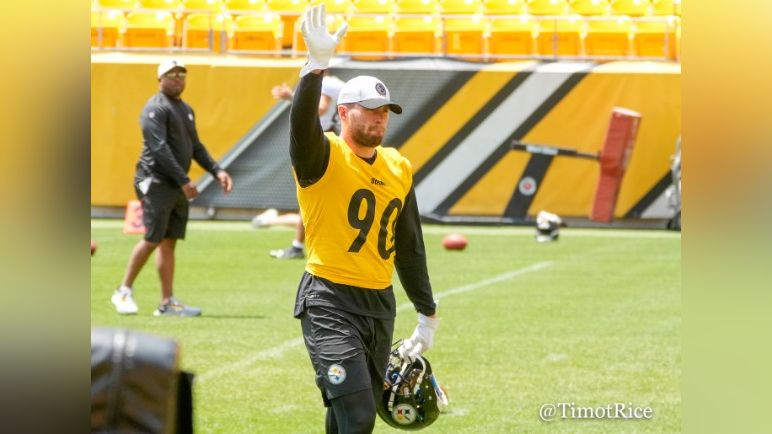T.J. Watt is an exceptional talent, the sort that comes along scarcely. The production that he has had through the first four seasons of his career is unlike anybody else the Pittsburgh Steelers have had in their history, and he remains at his peak, with the work ethic and athletic ability that indicates he will remain there for at least several more years.
That’s why they broke a long-held precedent in order to get him under contract. According to reports, the Steelers guaranteed him $80 million at signing, including roughly $69.9 million in new fully guaranteed money outside of the $10.1 million that he was already guaranteed under his fifth-year option.
In total, his takeaway is five years for a bit over $122 million, with $112 million accounted for in the four-year new-money portion of the deal. It’s record-breaking numbers, not just for the Steelers, but for the NFL.
And that, pretty much, is where it ends. This happened because T.J. Watt is T.J. Watt, not because the Steelers suddenly weakened, and now agents all over the map will be able to take advantage of them and get year-two guarantees from Omar Khan and Kevin Colbert.
The reality is that this has been years in the making. Both Colbert and Art Rooney II spoke in the year after the Le’Veon Bell breakdown that they hoped to learn from that process. Regardless of how things worked out, Bell was a player they wanted to sign, and they only failed to sign him because they weren’t willing to guarantee more.
But not even Bell is Watt. Yes, Bell was an elite talent. But he also had an arrest under his belt. He was suspended multiple times, and under the rules at the time, was at one point on the verge of potentially facing a season-long suspension if he faced another marijuana-related disciplinary measure.
He also had multiple significant injuries, including an MCL tear in 2015, and a groin tear in 2016. He plays a position known to have a shorter shelf life than average, and they played him like they always play running backs, running his wheels off.
So, sure, they were willing to pay him and put up dollars. But they weren’t going to tie up a lot of money down the road. They were going to keep an even cashflow and make it, as much as possible, a year-to-year deal they could get out of.
They knew, otherwise they wouldn’t have done it, that they didn’t have to do that with Watt. He doesn’t face the same kind of questions about his positional, health, or disciplinary background. There is no ambiguity about his dedication to his craft. There aren’t a lot of players like Watt.
Minkah Fitzpatrick is one of them, and a year from now, it’s quite possible he sees at least his second-year base salary guaranteed when he gets extended. But don’t expect these sorts of contract structures to suddenly become the norm in Pittsburgh. There are no floodgates to open, here. They merely did what they had to do, and were willing to do; things they won’t be willing to do for nearly any other player.








